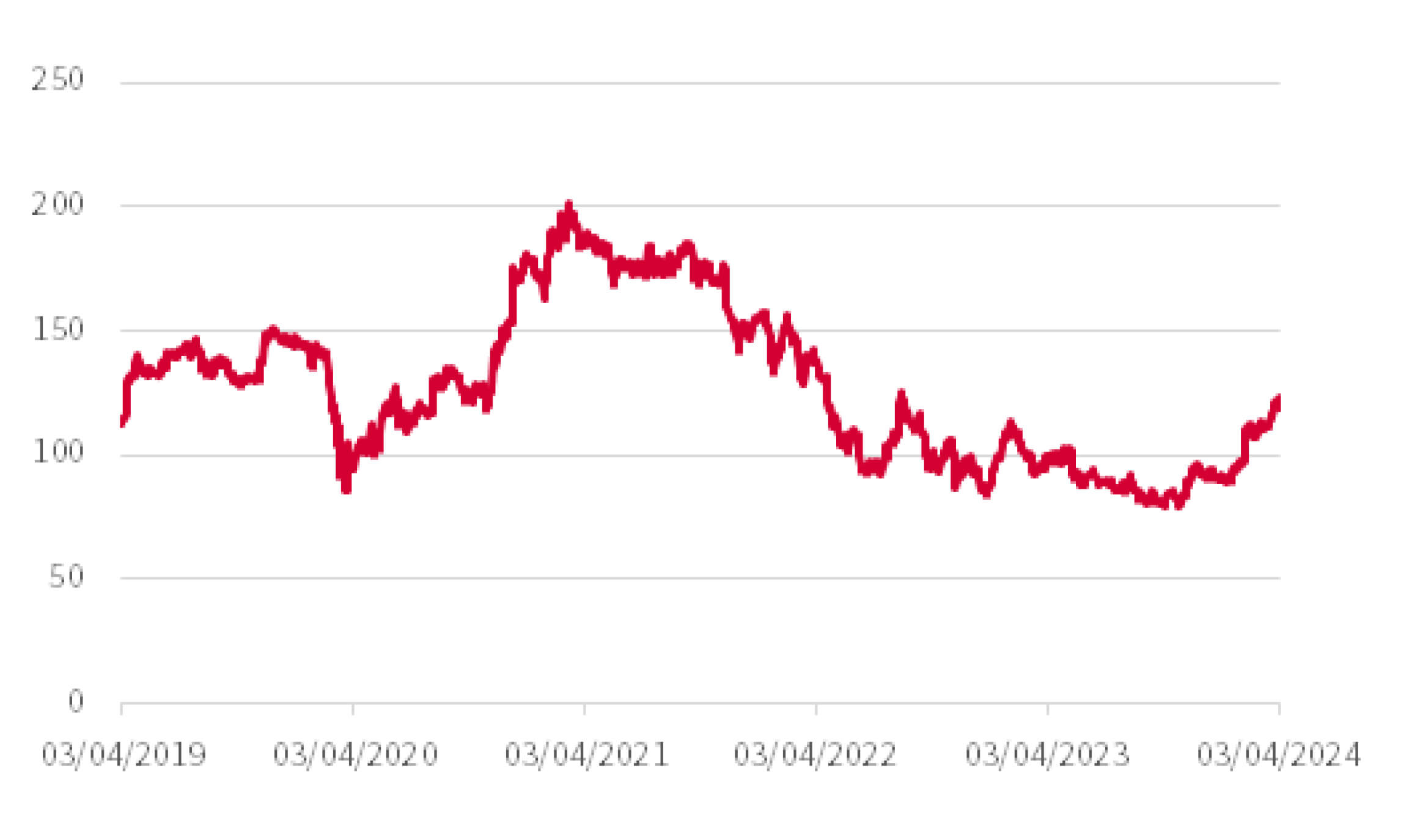


Nelson Peltz’s failure to get a seat on the board of directors at Disney has raised the question: are activist investors losing their touch? Peltz might have enjoyed success with earlier campaigns at Heinz and Wendy’s, yet he also sits alongside big names such as Pershing Square’s Bill Ackman where campaigns have not gone their way.
Peltz wanted to shake up Disney and prioritise areas such as cost cutting, making the streaming operations profitable, improving the quality of output from its film studios and finding a successor to CEO Bob Iger. Investors did not feel they needed Peltz to have a seat at the table given how Disney’s share price had already risen by 50% in the six months before the proxy vote on 3 April.
Disney’s results in February contained enough nuggets to convince the market that Iger’s recovery plan was working. Earnings are growing, shareholders are getting a much bigger dividend, the streaming business is on track to become profitable this fiscal year, it’s investing to grow theme parks and a big cost-cutting exercise is underway. Who needs an activist in this situation?
Peltz has been quite vocal about his desire to fix Disney so perhaps this criticism was enough to spur Iger into making changes. Sometimes companies like to get one step ahead of an activist so they can take all the credit and not act like sheep, guided by an activist sheepdog into taking a new path.
Activist investor Elliott recently popped up on the shareholder register of Scottish Mortgage, a popular investment trust with UK investors which has gone from trading at a premium to net asset value to languishing at a discount.
It seems to have been more than a coincidence that Scottish Mortgage a week earlier had declared a £1 billion share buyback. One has to wonder if it got wind of Elliott building a stake and rushed out the buyback news because that was exactly what an activist would have demanded anyway.
A paper published in the Yale Law Journal two years ago explored the idea that corporate raiders break things and activists fix them. The paper said conventional wisdom was wrong and that activist investors were more likely than corporate raiders to destroy value.
Corporate raiders buy entire companies and have unrestricted access to non-public information which means they can do a deep dive to see if it is worth changing the target’s business strategy. In contrast, activists take minority stakes and have limited information, said the paper.
Bill Ackman became an activist investor in JC Penney and insisted that the company stopped discounting goods and running clearance sales. The strategy shift backfired, revenue fell by a quarter and the share price sank.
Peltz launched an activist campaign in 2013 at PepsiCo, demanded it buy Mondelez and then split the group into two businesses – one focused on drinks and the other on food. PepsiCo rejected the proposal and stuck to its knitting. Three years later, Peltz sold out. While he did not get what he wanted, he was still a winner as he still achieved a 50% return on investment.
Disney share price ($)

Source: LSEG
One could argue he has already cleaned up with Disney, even though he did not get a seat on the board. Peltz’s Trian vehicle built up a position in late 2022 when the stock traded around $90 per share. It is now trading at $118. Even though that only implies a small paper profit, it adds up to hundreds of millions of dollars given the size of Trian’s stake in the business.
Whether or not activists still have the magic touch, it pays to monitor targeted companies. Dr Martens is among the latest names to be in the firing line after seeing its share price fall by 75% since floating in 2021. Marathon Partners has bought more than five million shares in the bootmaker and demanded Dr Martens think about strategic options such as putting itself up for sale. The publication of Marathon’s letter gave a boost to Dr Martens’ share price as investors speculate that it could be the catalyst for change.
It is better to consider each activist situation on a case-by-case basis, based on the performance of a US-listed exchange-traded fund which invests in companies targeted by activists. As of 4 March 2024, Leadershares Activist Leaders ETF had stakes in names such as internet domain registrar GoDaddy, asset manager Janus Henderson, music streaming platform Spotify and Burger King owner Restaurant Brand.
While the ETF is a useful way of spotting activist targets, its performance has not matched the broader market. Since launch on 26 October 2020, the ETF has returned 41% versus 54% from the S&P 500. Admittedly, that is only a limited period and not long enough to draw any firm conclusions.
Activists might give the impression they care deeply about a company and want to fix broken entities. However, they are just looking for ways to make money. Their suggestions are often mere common-sense business decisions and sometimes it just takes public criticism to focus the mind of a CEO. The role of activist can be rewarding in the long term if they identify the right things to fix. Just do not expect everything they touch to turn to gold.
Past performance is not a guide to future performance and some investments need to be held for the long term.
This area of the website is intended for financial advisers and other financial professionals only. If you are a customer of AJ Bell Investcentre, please click ‘Go to the customer area’ below.
We will remember your preference, so you should only be asked to select the appropriate website once per device.